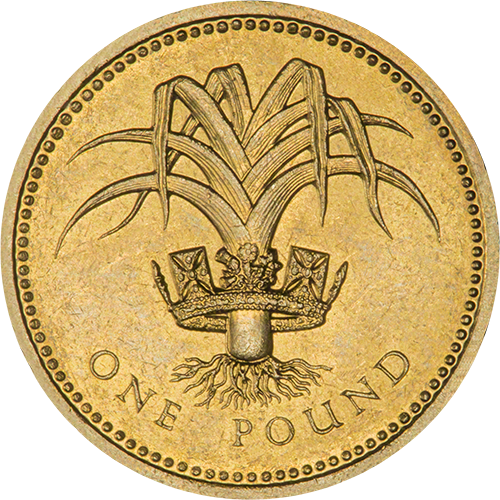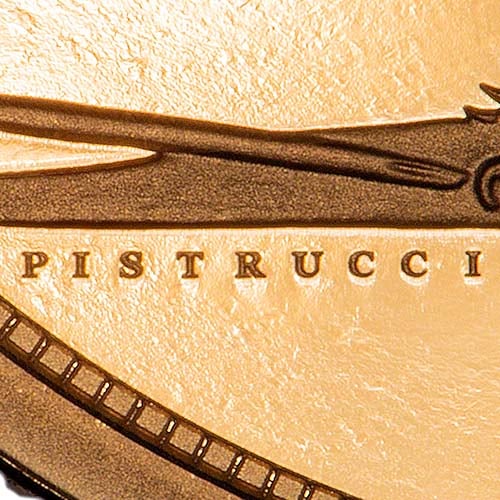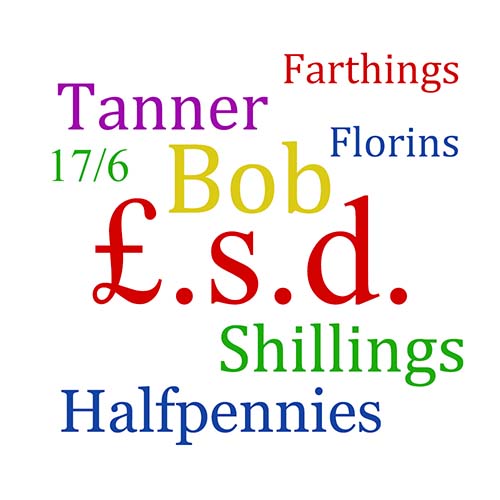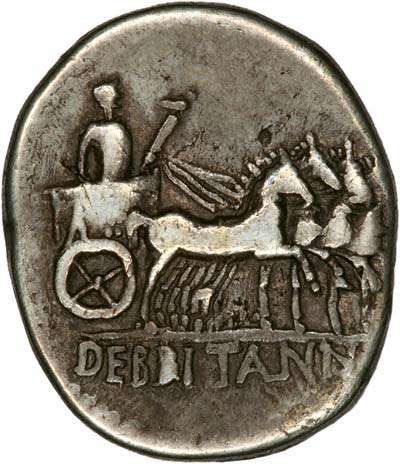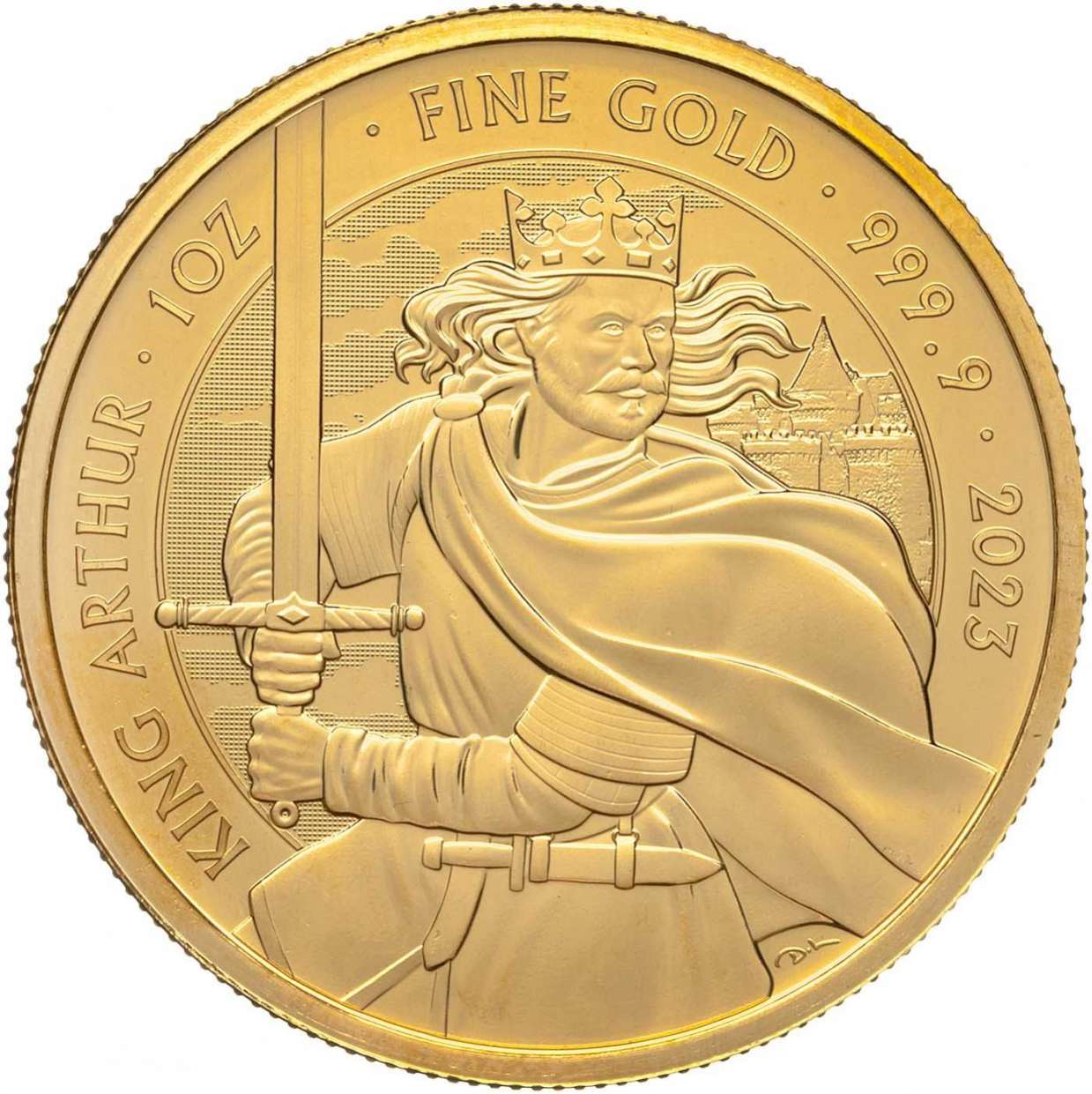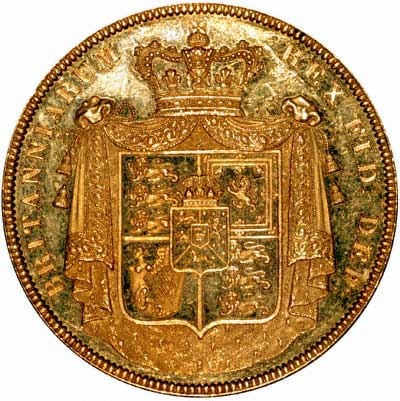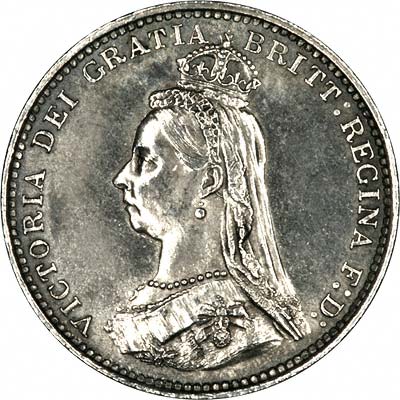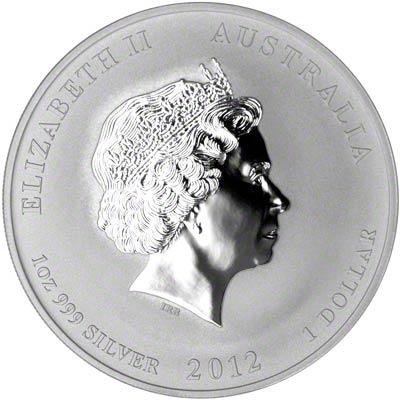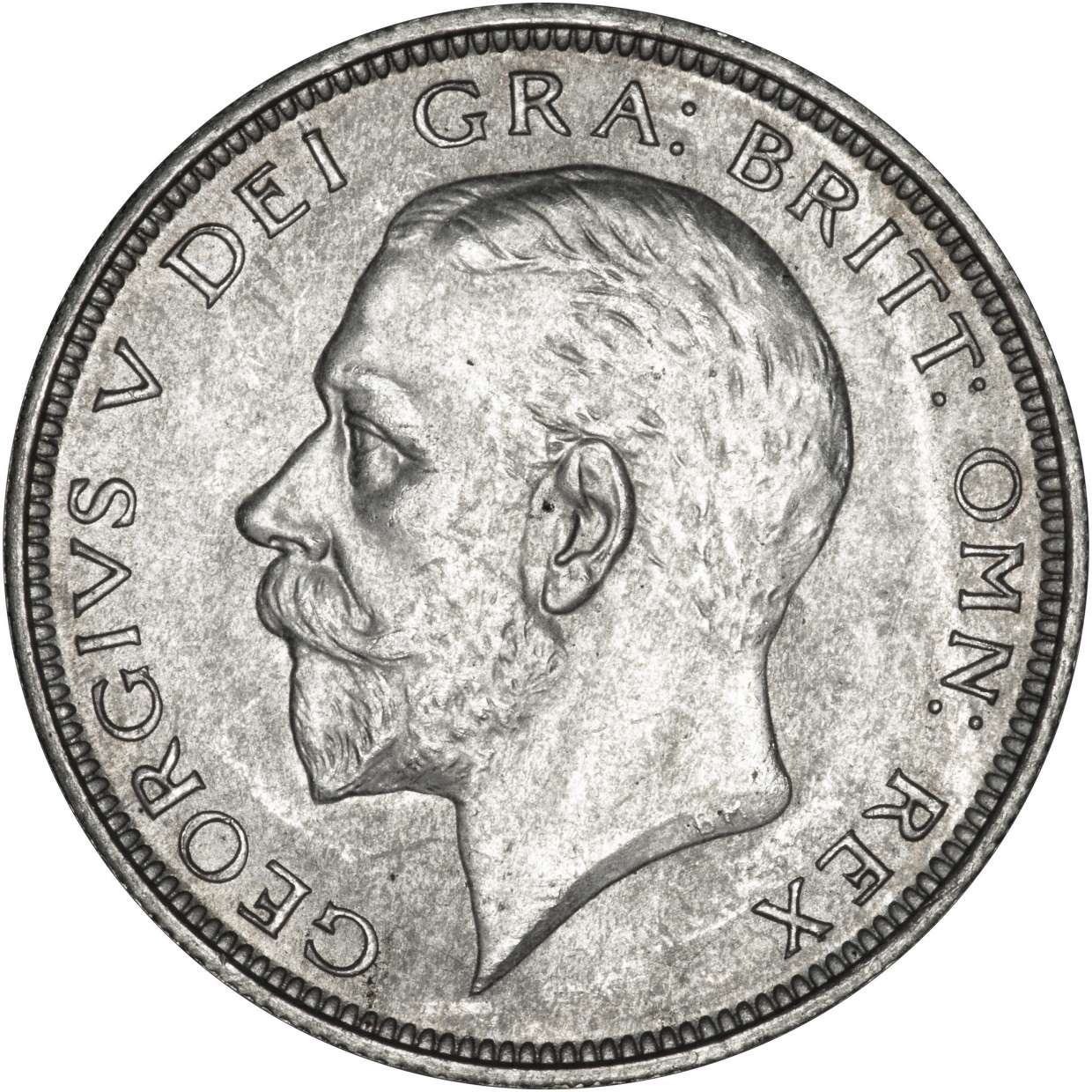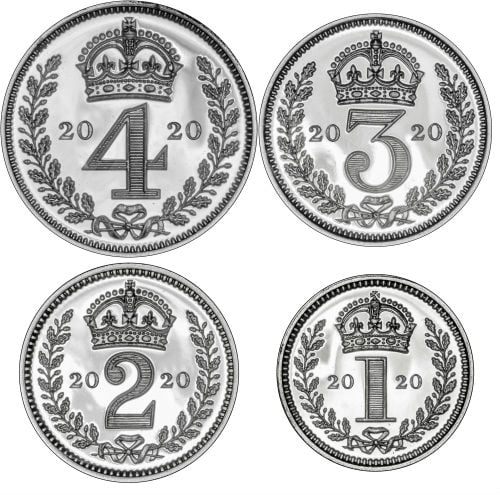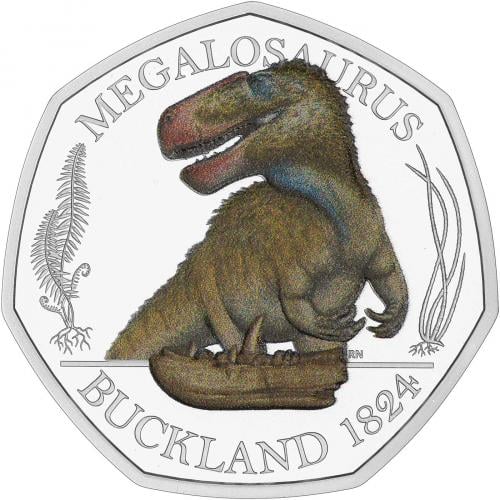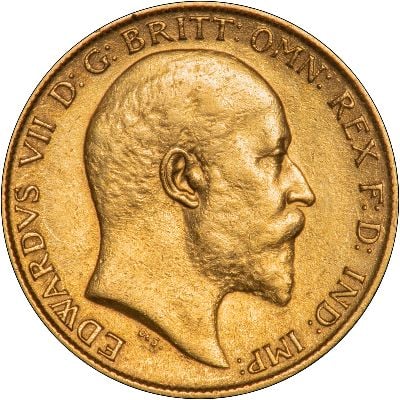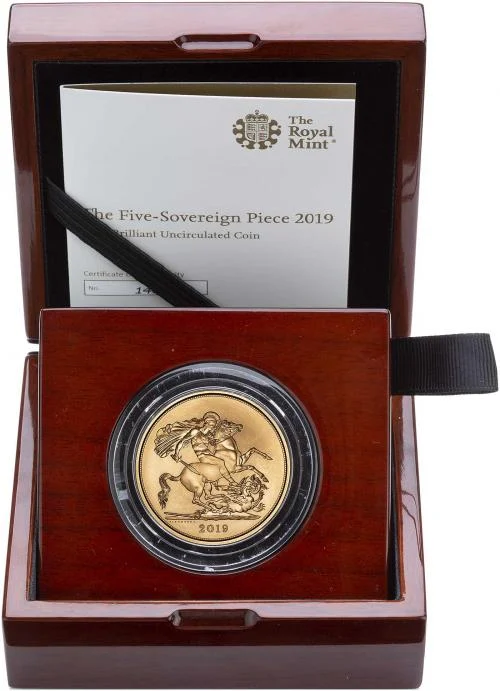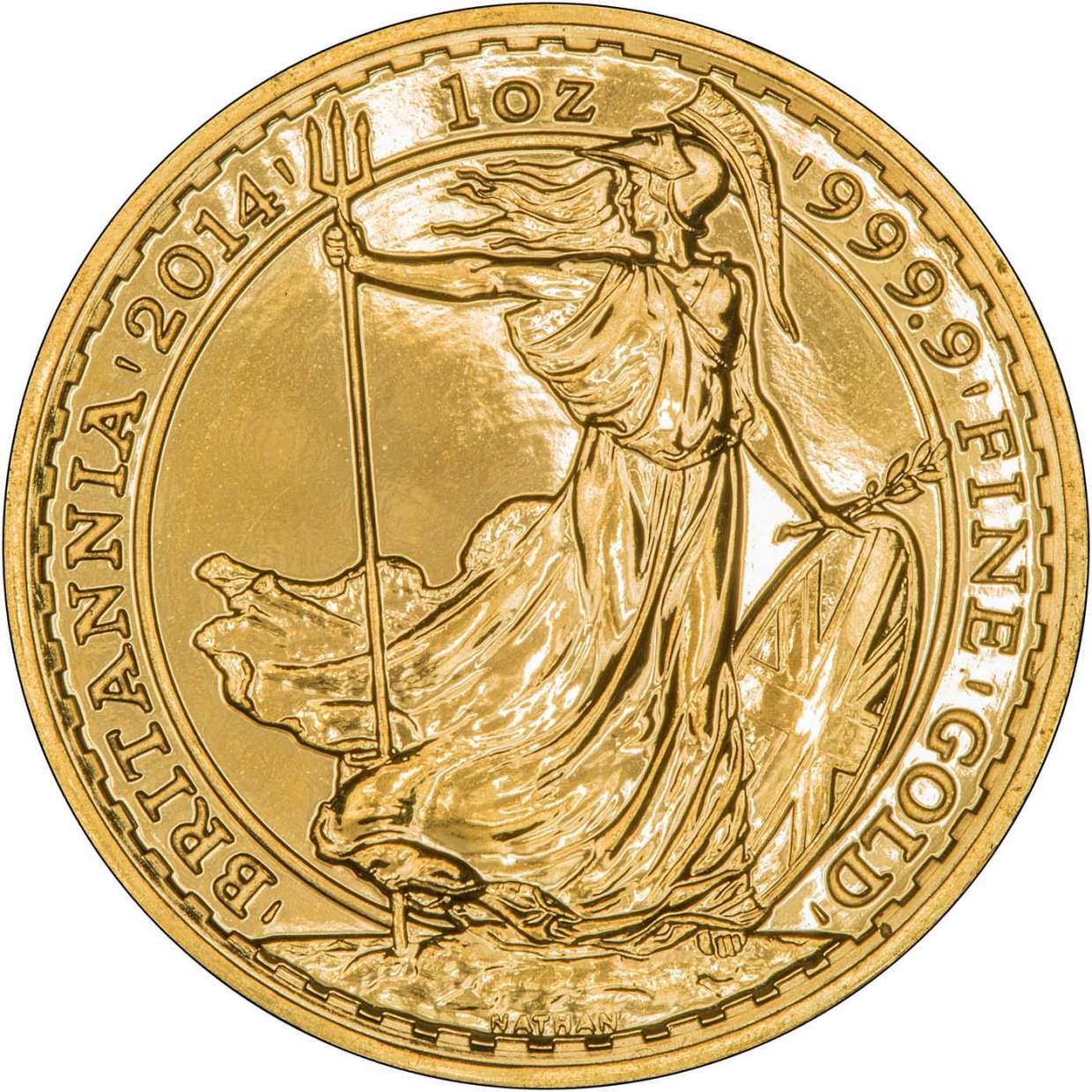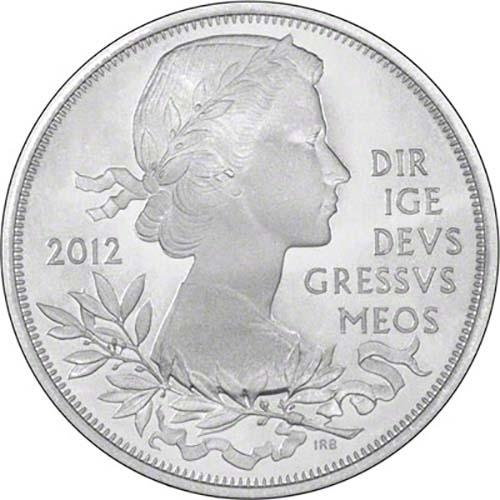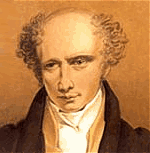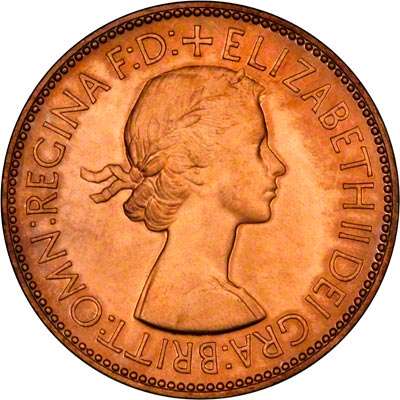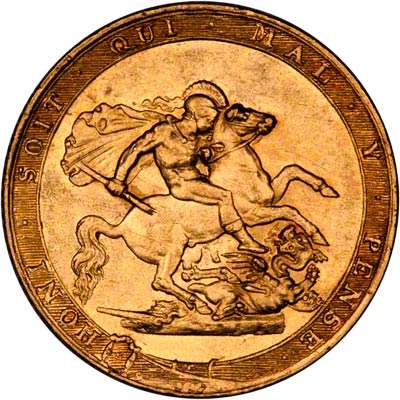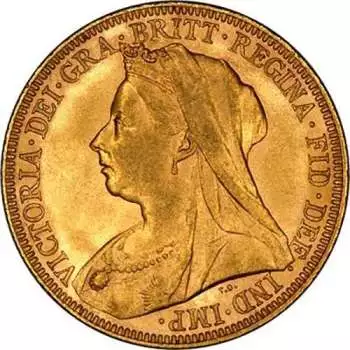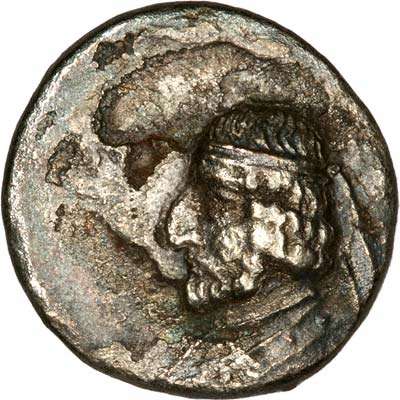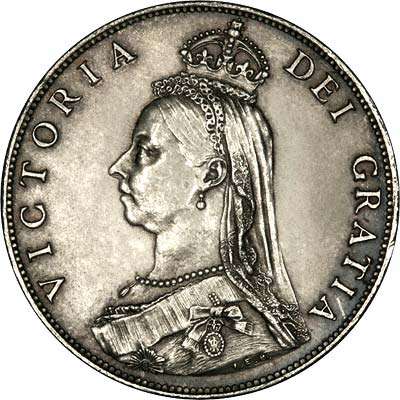One Pound Coin Designs 1983 - 2017
Synopsis
We take a look at the £1 coin designs from 1983 to 2017.
This is our blog, if you are interested in purchasing one pound coins please click this link.
We take a look at the £1 coin designs from 1983 to 2017
There have been many designs and themes for this favourite coin. Over 2.8 billion £1 coins have been issued since 1983, making this one of the most used circulation coins in British decimal history.
The First British One Pound Coin
Let's start at the very beginning. Actually, the 1983 £1 coin is not Britain's first pound coin. The history of the one pound coin starts in 1489 when Henry VII approved a hammered gold coin, the Sovereign, which was issued with the value of one pound.
In 1817, the modern sovereign was introduced with a nominal value of one pound. The sovereign was used as a £1 coin up until the middle of the First World War after which time it was gradually replaced by the £1 banknote. The gold sovereign is still issued today and celebrates its 200th Anniversary in 2017 with both a proof and an uncirculated commemorative design. The sovereign is usually bought by investors and coin collectors, although it has a nominal value of one pound, the intrinsic value far outweighs this.
The £1 Coin Replaces the £1 Banknote
In 1983, the £1 coin was introduced to replace the one pound banknotes. The £1 paper banknotes couldn't withstand the amount of use and with just six months usage, they quickly became tatty and torn. The new round pound coin struck in nickel-brass offered a replacement which would be durable, easy to handle and cheaper to produce.
The one pound coin was introduced into circulation on 21 April 1983. The last £1 banknote was issued in 1984 and ceased to be legal tender on 11 March 1988.
The round pound will be replaced by the 12 sided one pound coin on the 28 March 2017. You have until 15 October 2017 to spend your old round pound coins, after that they will be demonetarised and you will need to submit them to the Bank of England.
Specifications
| Date | 1983-2016 | 2017 |
| Shape | Round | Twelve Sides |
| Diameter | 22.50mm | 23.43mm |
| Thickness | 3.15mm | 2.8mm |
| Weight | 9.5g | 8.75g |
| Metal | Nickel-Brass | Outer ring - Nickel-brass Inner ring - Nickel-plated nickel-brass |
1983
Reverse Design: Royal Arms by Eric Sewell, former Chief Engraver at The Royal Mint.
Elizabeth II is a decendent of William the Conqueror. She is the head of the oldest royal lines in Christendom. The English lion and the Scottish tethered unicorn flank the quartered shield containing the historic coat of arms of England, Scotland and Ireland. The shield is surmounted by a lion atop a crown and is surrounded by the Order of the Garter's motto HONI SOIT QUI MAL Y PENSE. The banner at the base of the design bears the inscription DIEU ET MON DROIT.
Obverse Design: Elizabeth II second coin portrait by Arnold Machin
Edge Inscription: DECUS ET TUTAMEN which translates to 'AN ORNAMENT AND A SAFEGUARD'. This inscription was first featured on the edge of milled coins in 1662 to prevent clipping.
Mint mark: The 1983 pound coin was the first British coin to be struck with the Llantrisant mint mark - a cross crosslet symbol on the milled edge. The Royal Mint strikes their coins in Llantrisant. Llantrisant means 'Church or Parish of the Three Saints Illtyd, Gwynno and Dyfodwg'.
This reverse design was repeated in 1993 with the Queen's third coin portrait obverse and in 1998, 2003 and 2008 with the Queen's fourth coin portrait obverse.
Floral Emblem Series I 1984 - 1987
1984
Reverse Design: This is the first of a series of four designs which were created by the silversmith, Leslie Durbin.
Scottish thistle encircled by the King George IV State Diadem. The use of the thistle represents the Order of the Thistle, the highest honour in Scotland which according to legend originated in 809 when King Achaius signed an allegiance with Emperor Charlemagne. James III of Scotland adopted the thistle as the royal floral symbol during his reign, 1460 to 1488.
Obverse Design: Elizabeth II second coin portrait by Arnold Machin,
Edge Inscription: NEMO ME IMPUNE LACESSIT which translates to 'NO-ONE PROVOKES ME WITH IMPUNITY'.
Mint mark: Llantrisant mint mark
1985
Reverse Design: The second in the series of four designs by silversmith, Leslie Durbin.
Welsh leek encircled by the King George IV State Diadem. The leek was first associated as a Welsh symbol in 633AD when St David commanded his soldiers to wear a leek in their helmets to distinguish them against the Saxon enemy army in the battle of Heathfield. The leek has been the national emblem of Wales since the 16th century.
Obverse Design: Elizabeth II third coin portrait by Raphael David Maklouf.
Edge Inscription: PLEIDIOL WYF I'M GWLAD which translates to 'TRUE AM I TO MY COUNTRY'.
Mint mark: Llantrisant mint mark
1986
Reverse Design: The third in the series of four designs by silversmith, Leslie Durbin, CBE.
Flax plant within the King George IV State Diadem. The flax plant was first introduced to Norther Ireland by Phoenician traders around 370BC. Flax is used to produce linen, the fibres run the whole length of the plant and it is pulled at harvesting, not cut which is why the roots are shown. Northern Ireland is famous for being one of the producers of the finest linen in the world.
Obverse Design: Elizabeth II third coin portrait by Raphael David Maklouf.
Edge Inscription: DECUS ET TUTAMEN which translates to 'AN ORNAMENT AND A SAFEGUARD'.
Mint mark: Llantrisant mint mark
1987
Reverse Design: The fourth in the series of four engravings by silversmith, Leslie Durbin, CBE.
Oak tree within the King George IV State Diadem. The oak tree is the national tree of England, symbolising strength, solidity, endurance and permanance. Elements of the oak have featured on British coinage since the 19th century; oak wreaths and acorns entwined within oak branches.
Obverse Design: Elizabeth II third coin portrait by Raphael David Maklouf.
Mint mark: Llantrisant mint mark
1988
Reverse Design: Shield of Royal Arms surmounted by the Imperial State crown by Derek Gorringe, deputy chief engraver at The Royal Mint.
The quartered shield features the lion rampant set within a double tressure flory counter flory border representing Scotland. The three passant gardant lions representing England is featured in two quarters. The three lions were first used in a seal by King Richard I. Wales is not represented as since the Act of Union in 1704, it is classed as a fundemental part of the Kingdom of England. The arms of Ireland; the Azure a harp Or which has been used as a heraldic emblem since the 13th century.
Obverse Design: Elizabeth II third coin portrait by Raphael David Maklouf.
Edge Inscription: DECUS ET TUTAMEN which translates to 'AN ORNAMENT AND A SAFEGUARD'.
Mint mark: Llantrisant mint mark
Floral Emblem Series II 1989 - 1992
1989
Reverse Design: The four designs by Leslie Durbin were repeated between 1989 to 1992.
Scottish thistle encircled by the King George IV State Diadem.
Obverse Design: Elizabeth II third coin portrait by Raphael David Maklouf.
Edge Inscription: NEMO ME IMPUNE LACESSIT
Mint mark: Llantrisant mint mark
1990
Reverse Design: The four designs by Leslie Durbin were repeated between 1989 to 1992.
Welsh leek encircled by the King George IV State Diadem.
Obverse Design: Elizabeth II third coin portrait by Raphael David Maklouf.
Edge Inscription: PLEIDIOL WYF I'M GWLAD.
Mint mark: Llantrisant mint mark
1991
Reverse Design: The four designs by Leslie Durbin were repeated between 1989 to 1992.
Flax plant within the King George IV State Diadem.
Obverse Design: Elizabeth II third coin portrait by Raphael David Maklouf.
Edge Inscription: DECUS ET TUTAMEN.
Mint mark: Llantrisant mint mark
1992
Reverse Design: The four designs by Leslie Durbin were repeated between 1989 to 1992.
Oak tree within the King George IV State Diadem.
Obverse Design: Elizabeth II third coin portrait by Raphael David Maklouf.
Edge Inscription: DECUS ET TUTAMEN.
Mint mark: Llantrisant mint mark
1993
Reverse Design: Royal Arms by Eric Sewell.
Obverse Design: Elizabeth II third coin portrait by Raphael Maklouf.
Edge Inscription: DECUS ET TUTAMEN.
Mint mark: Llantrisant mint mark.
Series III National Emblems 1994 - 1997
1994
Reverse Design: Standing lion rampant within a double tressure flory counter flory border representing Scotland by Norman Sillman.
Obverse Design: Elizabeth II third coin portrait by Raphael Maklouf.
Edge Inscription: NEMO ME IMPUNE LACESSIT
Mint mark: Llantrisant mint mark.
1995
Reverse Design: Dragon passant representing Wales by Norman Sillman.
Although Wales is considered a principality, the Welsh are fiercely proud of their heritage and the Welsh language is spoken by more than a quarter of their population. Since the 16th century, the dragon has been recognised as the heraldic emblem of Wales. The dragon epitomises the fire, strength and spirit of this proud nation.
Obverse Design: Elizabeth II third coin portrait by Raphael Maklouf.
Edge Inscription: PLEIDIOL WYF I'M GWLAD
Mint mark: Llantrisant mint mark.
1996
Reverse Design: Pimpernel flower contained within a Celtic cross and a Broighter collar representing Northern Ireland by Norman Sillman.
The famous Celtic collar was one of a small number of gold objects that had been discovered by a farmer in Broighter, County Londonderry. It is thought that they were an offering to Manannán mac Lir, an ancient Irish sea-god. The Broighter collar and the other six gold objects of the hoard can be seen at the National Museum in Dublin.
The pimpernel is a small flower which grows in abundance in the wet, marshy conditions around Lough Neagh.
Obverse Design: Elizabeth II third coin portrait by Raphael Maklouf.
Edge Inscription: DECUS ET TUTAMEN
Mint mark: Llantrisant mint mark.
1997
Reverse Design: Three lions passant guardant representing England by Norman Sillman.
The three lions were introduced to English heraldry by King Richard I, also known as Richard the Lionheart (1189-1199AD). He used flags bearing three gold lions against a scarlet background to symbolise the English throne during the Crusades. The three lions epitomise England and are used to represent England in sporting events such as football and rugby.
Obverse Design: Elizabeth II third coin portrait by Raphael Maklouf.
Edge Inscription: DECUS ET TUTAMEN
Mint mark: Llantrisant mint mark.
1998
Reverse Design: Royal Arms by Eric Sewell.
Obverse Design: Elizabeth II fourth coin portrait by Ian Rank-Broadley.
Edge Inscription: DECUS ET TUTAMEN
Mint mark: Llantrisant mint mark.
Series IV National Emblems 1999 - 2002
1999
Reverse Design: Standing lion rampant within a double tressure flory counter flory border representing Scotland by Norman Sillman.
Obverse Design: Elizabeth II fourth coin portrait by Ian Rank-Broadley.
Edge Inscription: NEMO ME IMPUNE LACESSIT
Mint mark: Llantrisant mint mark.
2000
Reverse Design: Winged dragon passant representing Wales by Norman Sillman.
Obverse Design: Elizabeth II fourth coin portrait by Ian Rank-Broadley.
Edge Inscription: PLEIDIOL WYF I'M GWLAD
Mint mark: Llantrisant mint mark.
2001
Reverse Design: Pimpernel flower contained within a Celtic cross and a Broighter collar representing Northern Ireland by Norman Sillman.
Obverse Design: Elizabeth II fourth coin portrait by Ian Rank-Broadley.
Edge Inscription: DECUS ET TUTAMEN
Mint mark: Llantrisant mint mark.
2002
Reverse Design: Three lions passant guardant representing England by Norman Sillman.
Obverse Design: Elizabeth II fourth coin portrait by Ian Rank-Broadley.
Edge Inscription: DECUS ET TUTAMEN
Mint mark: Llantrisant mint mark.
2003
Reverse Design: Royal Coat of Arms by Eric Sewell.
Obverse Design: Elizabeth II fourth coin portrait by Ian Rank-Broadley.
Edge Inscription: DECUS ET TUTAMEN
Mint mark: Llantrisant mint mark.
Series V Pattern Bridges 2004 - 2007
2004
Reverse Design: The first in a series of four 'bridge' pattern designs showcasing Britain's engineering prowess which improved the infrastructure of the nation and the British Empire.
The Forth Bridge in Scotland by Edwina Ellis. The iconic cantilever railway bridge over the Firth of Forth connects Edinburgh and North Queensbury. The bridge is a UNESCO World Heritage Site and is the second longest single cantilever bridge in the world.
The bridge engraving is contained within a border of railway tracks.
Obverse Design: Elizabeth II fourth coin portrait by Ian Rank-Broadley.
Edge Inscription: Two lines, one curved and one slightly angular which overlap each other around the circumference. These are representative of bridges and pathways.
Mint mark: No mint mark.
2005
Reverse Design: The 2005 Menai Straits bridge one pound coin is the second in a four-coin series by Edwina Ellis.
The Welsh Menai Straits bridge engraving is contained within a border of railings. The Grade 1 listed suspension bridge connects the island of Anglesey with the Welsh mainland.
Obverse Design: Elizabeth II fourth coin portrait by Ian Rank-Broadley.
Edge Inscription: Two lines, one curved and one slightly angular which overlap each other around the circumference. These are representative of bridges and pathways.
Mint mark: No mint mark.
2006
Reverse Design: The 2006 Egyptian Arch one pound coin is the third in the four coin bridge series by Edwina Ellis.
The Egyptian Arch Railway Bridge in Belfast represents Northern Ireland. The bridge is contained within a border of struts. The railway bridge is located on the Dublin to Belfast line. The bridge shape resembles the Egyptian pharaohs' nemes headdresses.
Obverse Design: Elizabeth II fourth coin portrait by Ian Rank-Broadley.
Edge Inscription: Two lines, one curved and one slightly angular which overlap each other around the circumference. These are representative of bridges and pathways.
Mint mark: No mint mark.
2007
Reverse Design: The last bridge design in a four coin series by Edwina Ellis.
Gateshead Millennium Bridge represents England. The bridge design is contained with a border of struts.
The Millennium Bridge is an award winning cyclist and pedestrian bridge which spans the River Tyne between Gateshead and Newcastle. The bridge has a cost effective tilting mechanism to all ships and boats to pass blow.
Obverse Design: Elizabeth II fourth coin portrait by Ian Rank-Broadley.
Edge Inscription: Two lines, one curved and one slightly angular which overlap each other around the circumference. These are representative of bridges and pathways.
Mint mark: No mint mark.
2008
Reverse Design: Royal Arms by Eric Sewell.
Obverse Design: Elizabeth II fourth coin portrait by Ian Rank-Broadley.
Edge Inscription: DECUS ET TUTAMEN
Mint mark: Llantrisant mint mark.
2008 - 2016
In 2008, a reverse design featuring the quartered Royal Arms shield was introduced. This coin was issued every year as part of the annual circulation coinage between 2008 - 2016.
Reverse Design: The Shield of Royal Arms by Matthew Dent.
Obverse Design: Elizabeth II fourth coin portrait by Ian Rank-Broadley.
Edge Inscription: DECUS ET TUTAMEN
Mint mark: Llantrisant mint mark.
Series VI Cities
2010 - Belfast
Reverse Design: The first in a series of four coins representing the capital cities of the United Kingdom; Belfast, London, Cardiff and Edinburgh by Stuart Devlin.
The principal Coat of Arms badge is the focus of the city being represented with three smaller badges for the other cities in the series.
The Belfast Coat of Arms dates back to 1890 and contains maritime symbols which were used by Belfast merchants; the ship and the bells.
Obverse Design: Elizabeth II fourth coin portrait by Ian Rank-Broadley.
Edge Inscription: PRO TANTO QUID RETRIBUAMUS this translates to 'WHAT SHALL WE GIVE IN RETURN FOR SO MUCH'. This is the motto for Belfast.
Mint mark: No mint mark.
2010 - London
Reverse Design: The second in the series of four coins representing the capital cities of the United Kingdom; Belfast, London, Cardiff and Edinburgh by Stuart Devlin.
The official coat of arms of the City of London; a large cross with an upright sword in the first quarter which combines the emblems of St George who is the patron saint of England and London.
Obverse Design: Elizabeth II fourth coin portrait by Ian Rank-Broadley.
Edge Inscription: DOMINE DIRIGE NOS this translates to 'LORD DIRECT US' and is the motto of London.
Mint mark: No mint mark.
2011 - Cardiff
Reverse Design: The third in the series of four coins representing the capital cities of the United Kingdom; Belfast, London, Cardiff and Edinburgh by Stuart Devlin.
The Cardiff Coat of Arms features a dragon holding a flag with three large chevrons and a large leek in the background.
Obverse Design: Elizabeth II fourth coin portrait by Ian Rank-Broadley.
Edge Inscription: Y DDRAIG GOCH DDYRY CYCHWYN, this translates to 'THE RED DRAGON SHALL LEAD', an apt motto for Cardiff.
Mint mark: No mint mark.
2011 - Edinburgh
Reverse Design: The last in the series of four coins representing the capital cities of the United Kingdom; Belfast, London, Cardiff and Edinburgh by Stuart Devlin.
The Edinburgh Coat of Arms features a heraldic symbol of Edinburgh Castle; the city's principal landmark. The three smaller badges represent the other cities in the series.
Obverse Design: Elizabeth II fourth coin portrait by Ian Rank-Broadley.
Edge Inscription: NISI DOMINUS FRUSTRA which translates to 'IT IS IN VAIN WITHOUT THE LORD', the motto of Edinburgh.
Mint mark: No mint mark
Series VII National Flora 2013 - 2014
2013
Reverse Design: The first in a series of four coins displaying the national floral emblems of the four countries of the United Kingdom by Timothy Noad.
Two coins were issued each year. This coin features the Tudor rose and an acorn on an oak branch which epitomises England.
Obverse Design: Elizabeth II fourth coin portrait by Ian Rank-Broadley.
Edge Inscription: DECUS ET TUTAMEN
Mint mark: Llantrisant mint mark.
2013
Reverse Design: The second in a series of four coins displaying the national floral emblems of the four countries of the United Kingdom by Timothy Noad.
Two coins were issued each year. This coin features the daffodil and leek synonymous with Wales.
Obverse Design: Elizabeth II fourth coin portrait by Ian Rank-Broadley.
Edge Inscription: PLEIDIOL WYF I’M GWLAD
Mint mark: Llantrisant mint mark.
2014 - Scotland
Reverse Design: The third in a series of four coins displaying the national floral emblems of the four countries of the United Kingdom by Timothy Noad.
Two coins were issued each year. In 2013, England and Wales were represented.
This 2014 coin features the thistle and the bluebell of Scotland.
Obverse Design: Elizabeth II fourth coin portrait by Ian Rank-Broadley.
Edge Inscription: NEMO ME IMPUNE LACESSIT
Mint mark: Llantrisant mint mark.
2014 - Northern Ireland
Reverse Design: The fourth in the series of four coins displaying the national floral emblems of the four countries of the United Kingdom by Timothy Noad.
Two coins were issued each year. This coin features the shamrock and the flax plant of Northern Ireland.
Obverse Design: Elizabeth II fourth coin portrait by Ian Rank-Broadley.
Edge Inscription: DECUS ET TUTAMEN
Mint mark: Llantrisant mint mark.
2015
Reverse Design: A modernised version of the Royal Arms by Timothy Noad. The crowned lion and the chained unicorn guard the quartered shield of arms which is set within the Order of the Garter and topped with the Imperial State crown. The floral emblems of England, Scotland and Northern Ireland are set at the base of the design.
Obverse Design: Elizabeth II fourth coin portrait by Ian Rank-Broadley.
Edge Inscription: DECUS ET TUTAMEN
Mint mark: Llantrisant mint mark.
2016
Reverse Design: The Last Round Pound design by Gregory Cameron features the four heraldic beasts of the United Kingdom. This quartered design contains the Imperial State crown in the centre.
Obverse Design: Elizabeth II fifth coin portrait by Jody Clark.
Edge Inscription: DECUS ET TUTAMEN
Mint mark: Llantrisant mint mark.
This coin was not issued for circulation.
2017
Reverse Design: by David Pearce
Obverse Design: Elizabeth II fifth coin portrait by Jody Clark.
Edge Inscription: Alternating reeded and plain edges.
Initially, when the design was revealed, promotional material from The Royal Mint displayed a date in Roman numerals on the plain edge. This feature has not been used on the coin sthat have been released for circulation or for presentation coins.
A special edition 2016 dated two coin set was released to commemorate the last round pound and the new 12 sided design Farewell and Nations of the Crown in a brilliant uncirculated finish. The reverse of the 12 sided £1 coin features a ‘cross crosslet’ mint mark for the Royal Mint's Llantrisant mint.

Do you have a favourite design? Let us know, we would love to hear from you.
Related Blog Articles
This guide and its content is copyright of Chard (1964) Ltd - © Chard (1964) Ltd 2025. All rights reserved. Any redistribution or reproduction of part or all of the contents in any form is prohibited.
We are not financial advisers and we would always recommend that you consult with one prior to making any investment decision.
You can read more about copyright or our advice disclaimer on these links.




